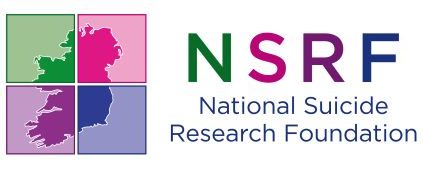
What is the PRISM Project?
In 2019, funding was awarded as part of the Health Research Board’s Emerging Investigators Award programme, for a four-year programme to examine outcomes for individuals who present to hospital as a result of self-harm.
The project is a collaboration between University College Cork, National Suicide Research Foundation and the Irish Health Service Executive. The project commenced in September 2019, and will run until August 2024.
This project will maximise the use of routinely available national data. A mixed methods approach will deliver actionable findings which will contribute to optimising services and outcomes for individuals who engage in self-harm, ultimately reducing deaths by suicide and other external causes. Findings will directly inform service delivery and contribute to national policy.
Project Aims
- Examine the clinical management of self-harm and its impact on risk of repeat self-harm, suicide and premature mortality.
- Examine the impact of the National Clinical Programme for Self-harm and Suicide-Related Ideation (NCPSHI) on patient outcomes, processes of care and economic savings.
- Identify the determinants contributing to the implementation of this Clinical Programme across Irish hospitals.
Team Members Involved
Dr Eve Griffin, Dr Grace Cully and Dr Selena O’Connell
Recent Publications
Cully G, Russell V, Joyce M, Corcoran P, Daly C, Griffin E (2024). Discharged from the emergency department following hospital‑presented self‑harm: referral patterns and risk of repeated self‑harm. Irish Journal of Medical Science. doi: 10.1007/s11845-024-03722-5.
Griffin E, Corcoran P, Arensman E, Kavalidou K, McMahon EM (2023). Suicide risk following hospital-presenting self-harm in Ireland: A national cohort study. Nature Mental Health. doi: 10.1038/s44220-023-00153-6.
Cully G, Corcoran P, Gunnell D, Chang SS, McElroy B, O’Connell S, Arensman E, Perry IJ, Griffin E (2023). A national clinical programme for the management of self-harm in hospital emergency departments: Impact on patient outcomes and the provision of care. BMC Psychiatry. doi: 10.1186/s12888-023-05340-4.
McMahon E, Hemming L, Robinson J, Griffin E (2023). Suicide and self-harm in young people. Frontiers in Psychiatry. doi: 10.3389/fpsyt.2022.1120396.
Griffin E, Corcoran P, Arensman E, Kavalidou K, Perry IJ, McMahon EM. (2023). Suicide risk following hospital attendance with self-harm: A national cohort study. Nature Mental Health, 1 (982-989).
Cully G, Corcoran P, Gunnell D, Chang SS, McElroy B, O’Connell S, Arensman E, Perry IJ, Griffin E. (2023). Evaluation of a national clinical programme for the management of self-harm in hospital emergency departments: Impact on patient outcomes and the provision of care. BMC Psychiatry, 23(1).
Griffin E, McHugh S, Jeffers A, Gunnell D, Arensman A, Perry IJ, Cully G, McElroy B, Maxwell M, Chang, SS, Ruane-McAteer E, Corcoran P (2022). Evaluation of the impact and implementation of a national clinical programme for the management of self-harm in hospital emergency departments: study protocol for a natural experiment. BMJ Open. doi: 10.1136/bmjopen-2021-055962.
Ruane-McAteer E, Corcoran P, Browne J, Hursztyn P, Griffin E (2021). Study designs and outcomes used in evaluation studies of hospital-presenting self-harm: protocol for a methodological systematic review. BMJ Open. doi: 10.1136/bmjopen-2020-044993.
Griffin E, Gunnell D, Corcoran P (2020). Factors explaining variation in the recommended care pathways following hospital-presenting self-harm. A multilevel national registry study. BJPsych Open. doi: 10.1192/bjo.2020.116.
Griffin E (2020). Timing of supports and interventions following self-harm is crucial. Lancet Regional Health – Western Pacific. doi: 10.106/j.lanwpc/2020.100034.

